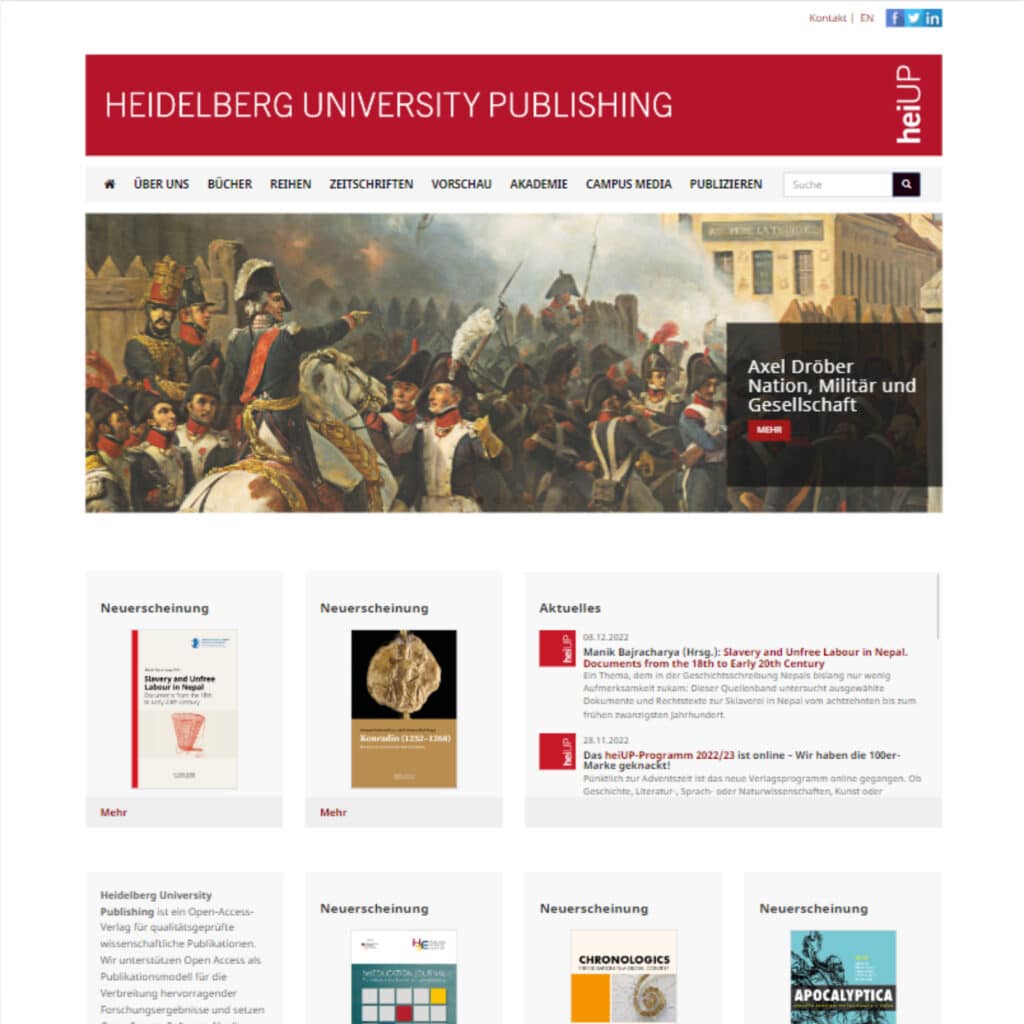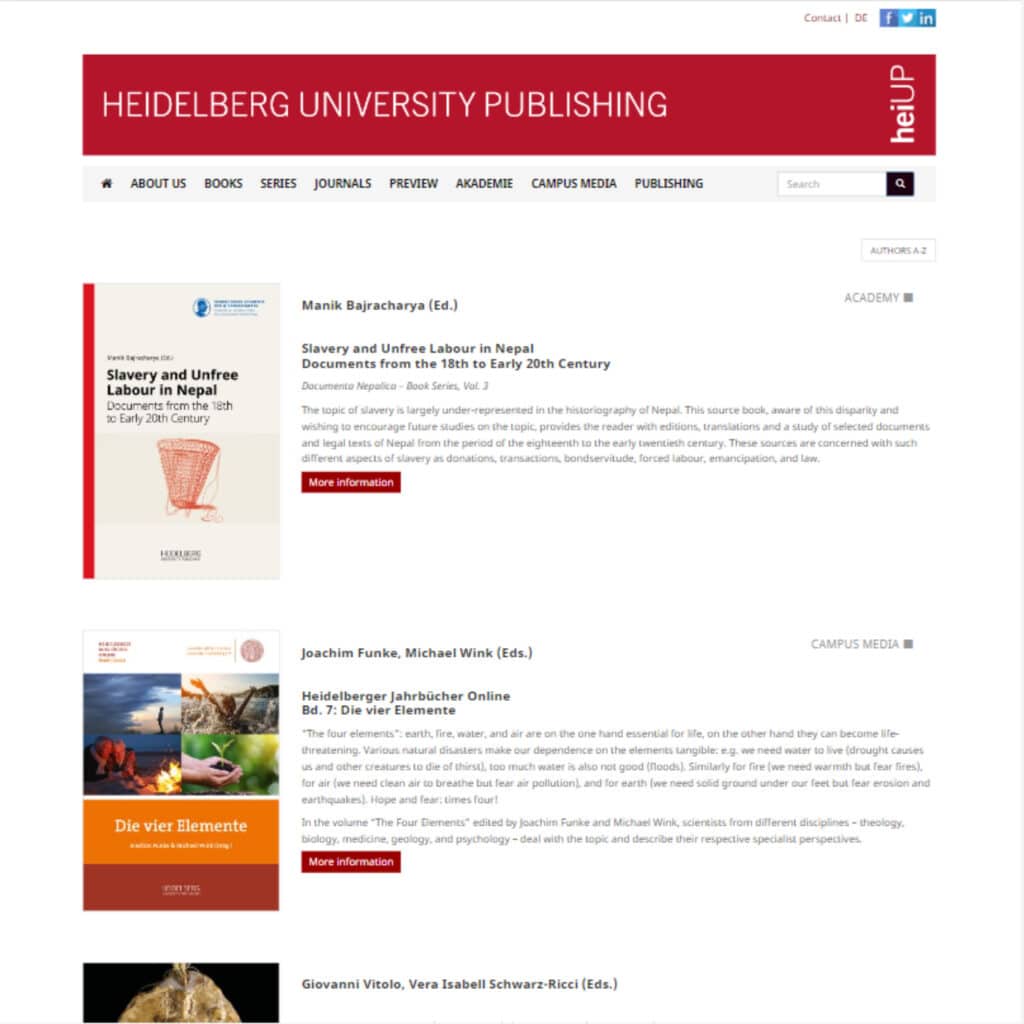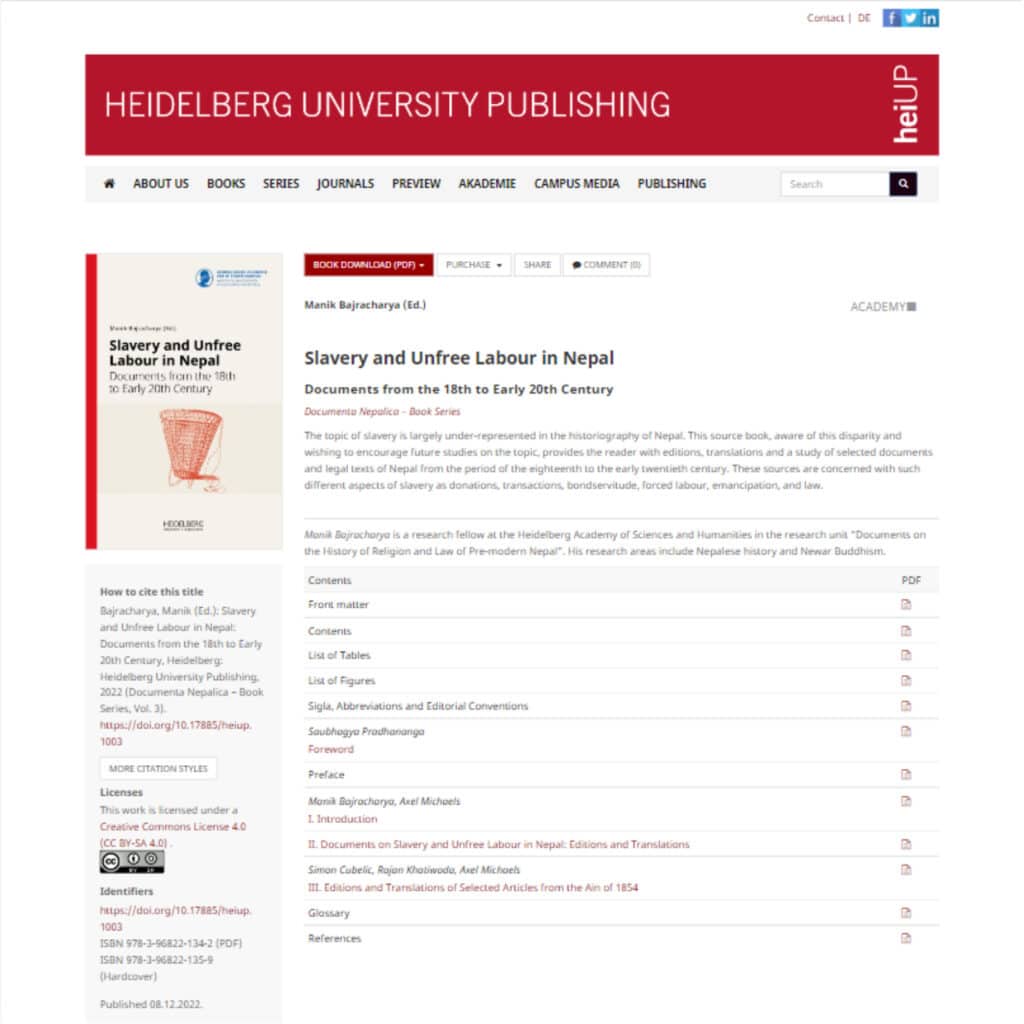


Heidelberg University Publishing, which is associated with the university library, runs an open access publishing service that uses OMP and OJS to publish journals and monographs. They host about 150 journals and five imprints which publish about 150 open access monographs and edited volumes every year.
Their bookshops include Heidelberg University’s academic publishing house Heidelberg University Publishing (heiUP), heiBOOKS (a service specifically for Heidelberg academics), and the publication platforms for three specialist information services, namely Art – Photography – Design, Ancient History (Propylaeum) and South Asia (FID4SA).
Dr. Maria Effinger, Head of the Publication Services department and Managing Director of heiUP, had this to say about their work with OJS and OMP.
The mission is to provide open access to outstanding academic publications. We see the opportunities afforded by digital publishing as a way to advance the visibility of research output beyond the confines of academic disciplines. For us, this means that we publish open access, follow a consistent e-strategy, use innovative digital publication formats, and ensure quality through a peer review process.
For Heidelberg University Library’s Open Access strategy, established open source software such as OJS and OMP, which is used in large numbers worldwide, is a good basis for its publishing activities. Unlike other projects of this kind, a stable group of programmers is at work here, constantly developing the source code and supported and enriched by a very active community. The possibility to include numerous plugins, but also to write your own plugins, offers a wide range of customization possibilities.
OJS and OMP are a easy to understand publishing software solutions for both editors and administrators. There are tutorials and even if you don’t find what you are looking for, you can often get help in the community. Setting up new journals is extremely fast and there are numerous options to customize them, be it for the layout or for additional functions. Publishing a book with numerous publication formats is quick to do as well, even if it is part of a series. The newer program versions also allow you to customize the frontend for your own specific requirements.
There are many ways to make articles and books visible in indexing systems worldwide, which significantly increases their reputation.
On the technical side it is an advantage that both software solutions are being so similar and thus plugins can be created and customized simultaneously. The communication with PKP staff has been very fruitful and problems during the development of plugins can be clarified very fast. This was one of the deciding factors to invest more into the platform.

Dr. Maria Effinger is Heidelberg University Library’s Head of the Publication Services department and Managing Director of heiUP since 2015; Project management (e.g. Scientific Information Services, arthistoricum.net, Propylaeum); Consultant for the Scientific Information Services for Art; Co-Spokesperson NFDI4Culture; and Open Access representative of the university.
